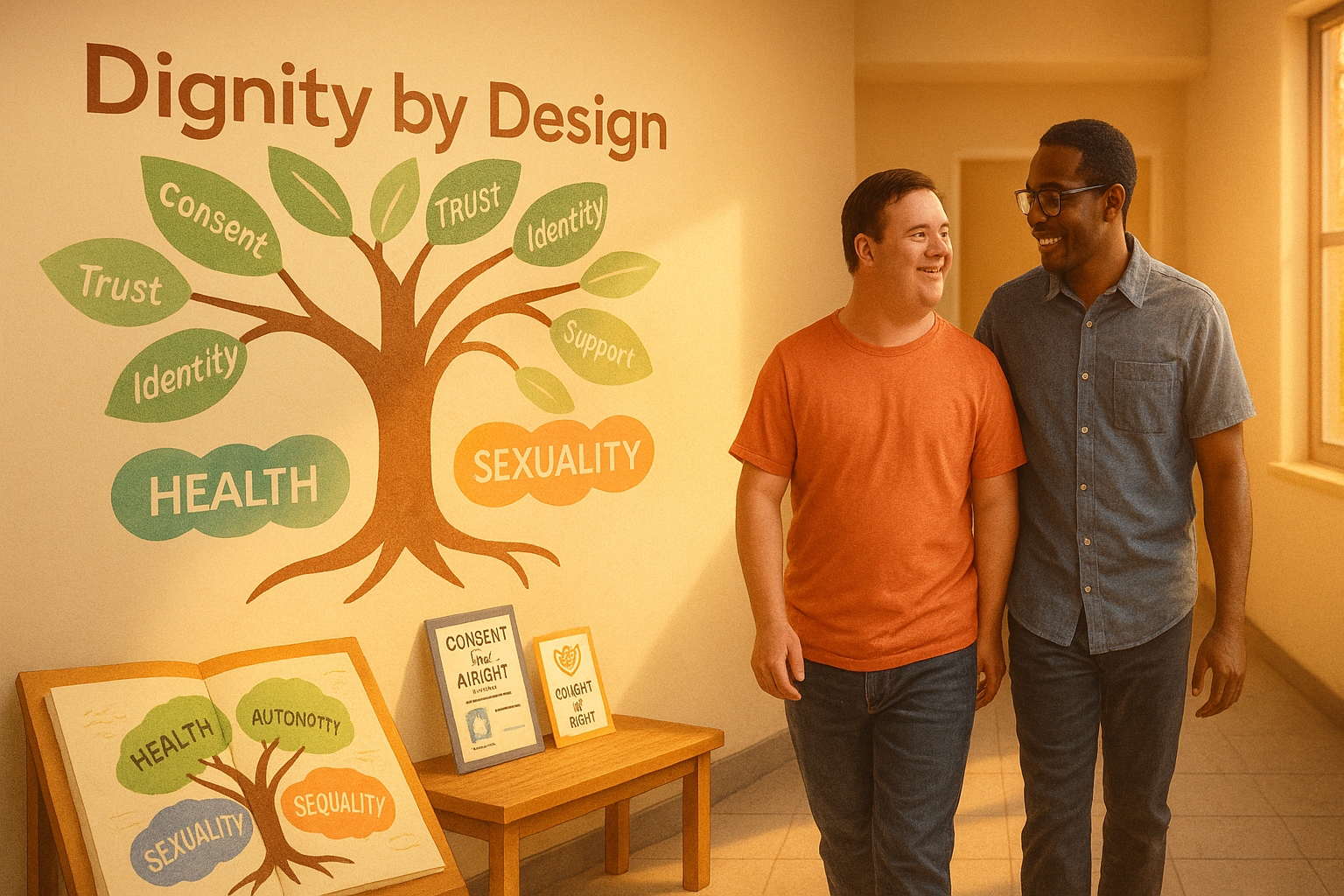Integrating Behavioral Health and Sexual Self-Determination for People with IDD
Recent developments in funding, philosophy, and practice show a powerful truth: autonomy isn’t abstract—it’s attainable. Here’s how three key initiatives are transforming systems to honor choice and dignity.
Building a Healthier Foundation in Behavioral Support
The California Department of Developmental Services' May 2025 revision unveiled a $2 million Behavioral Health Services Fund aimed at individuals with intellectual and developmental disabilities.
This isn’t just crisis funding—it’s systemic change. Coordinating regional centers, schools, mental-health agencies, and private providers, the fund emphasizes prevention, early intervention, and continuous care across lifespans. Integrating support across sectors shifts the system from reactive patches to proactive wellness—a design that supports individuals before breakdowns happen and strengthens their overall wellbeing.
Framing Sexual Self‑Determination as a Process
A recent MDPI paper offers a compelling model for sexual self-determination among people with IDD. Drawing on Frankfurt’s hierarchical-desire theory and the WHO’s definition of sexuality, it treats self-determination not as a moment, but as a sequence of decisions about identity, desire, partner choice, and consent. That insight recognizes cognitive complexity: people may need guided reflection to form authentic sexual self-awareness. It’s not about deciding for them but rather supporting the process with them.
Everyday Advocacy in Body Autonomy
Theory matters—but so do everyday actions. A Relias blog offers concrete ways to build body autonomy into IDD support:
Cultivating respectful environments through open dialogue
Teaching informed consent as a foundational right
Training staff to encourage self-advocacy
Embedding relationship education in daily interactions
The result? Individuals learn to understand their bodies, express boundaries, and live with dignity—supported not controlled.
Why This Matters
These initiatives form a coherent message: people with IDD deserve systems built around their autonomy, not around managing perceived limitations. Here’s what’s standing out:
Integrated health models affirm that wellbeing is continuous—not episodic.
Decision-centered frameworks treat autonomy as developmental—not instantaneous.
Cultural change in care settings embeds respect into everyday practice.
Together, they signal a shift—from containment to partnership; from compliance to choice.
Moving from Theory into Action
What steps can leaders, caregivers, and advocates take?
Adopt integrated funding models like California’s to support proactive, lifespan-oriented care.
Implement decision-based frameworks that treat sexual autonomy as a supported process—not a risk to manage.
Embed autonomy education into training programs for staff, families, and community providers.
Measure culture change—track how conversations, consent practices, and self-advocacy evolve.
Dignity by Design
Building dignity isn’t accidental—it’s intentional. When systems reflect autonomy at every level—from policy to philosophy to practice—they don’t just deliver services—they build communities where respect is standard. It’s not just possible—it’s happening. And that matters—for those we serve, and for everyone who believes inclusion is not optional.

